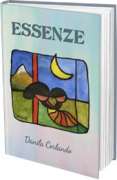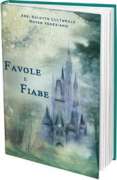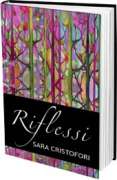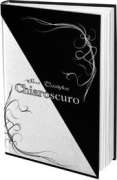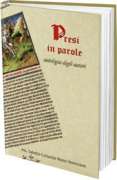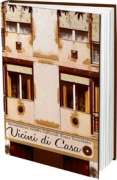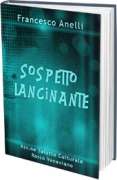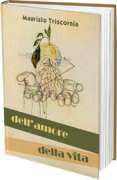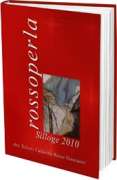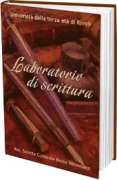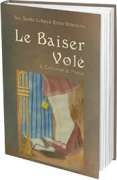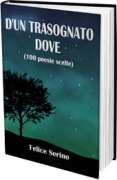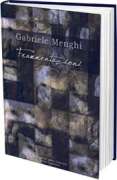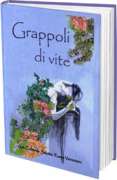Scritto da © Carlo Gabbi - Dom, 11/02/2018 - 04:50
Part Four
With springtime approaching, they were on the move again. Their journey took them into Slovenia, crossing over a greener hilly countryside that was returning to life, after the cold winter. The wagons traveled over secondary roads, well known to the Gypsies, and in their usual formation with goats and spare horses in the front, with the stronger people marching behind the animals, and finally the wagons, taking their scanty possessions and the elderly ones.
Finally, they entered the Ljubljana plateau. It was time to have a longer rest, not only for the animals, but also to find time to arrange a fresher supply of provision to use on the next leg of their journey. They camped on a nearby plain at the edge of the city.
Joko had planned to reach the Italian border no later than the oncoming summer. In June they traveled along the Dalmatian coast, and crossed into Italy at the Trieste’s border.
This was a hospitable place for the Gypsies and well remembered by their leader Joko. He guided the caravan along the Carso’s road, a secondary road zigzagging over the hills rising from the Isonzo River until they reached the outskirt of Gorizia where they set their summer camp near the river. Joko loved this valley and his memory took him back again in time when he had experienced some of his best days in his previous visits to this district. He remembered, when years earlier, he exchanged some Tokay and Green Pinot’s vine cuttings that he had taken with him from Hungary, for some pigs from a local farmer. Today the hillsides around the region are luxuriant, covering the area producing the best quality wines.
But it was in this valley that a miracle happened. Those memories were the happiest moments of his past. It was just up on the mountain rising in front of him that he and Marika had received the most precious and unexpected gift in their entire life.
He remembered Marika, while they were camping on the Isonzo, many years ago. She was in great despair and spent long hours at night crying after the last miscarriage a month earlier. Then one night she had a dream, foretelling the coming of a good omen. In the morning, she excitedly told Joko, “I have the most extraordinary news that fills me with hope and happiness. I dreamed that the Great Forest Mother had in her arms a baby girl, and told me, ‘This is the daughter you are waiting for and who you couldn’t conceive. Love her, as she is your own flesh. From now you’ll be the happy mother that you always wanted to be.’
“Please Joko go in the forest and take back the precious jewel that the Great Forest Mother wants us to have. And don’t forget to thank her with a large bunch of flowers that you pick in the forest as a symbol of our gratitude.”
Joko left Marika full of hope. He knew that the Gypsies must be believers, and only in this way, could they see their dreams come true.
He walked up the mountain and loudly he spoke to the forest spirit, ‘Great Forest Mother, please help us. Please make Marika’s dream be true. We will be for ever grateful for the magnificent present. Marika, with your help, will be the happiest mother that she had always hoped to be.”
. He walked securely in the thick woods, knowing his steps were guided by the Great Forest Mother. It was a narrow winding pathway, deeply cut on the side of the mountain. Above him was a majestic forest with the tall pines touching the sky. He recognized this was the Great Forest Mother’s realm. Where else would she guide him if not into the deepest part of her reign, the forest itself?
Joko, approaching the woods felt more confident in his hopes. At that altitude he felt dizzy, but the air was fresh, mixed with the pungent aroma of the resin, that opened his lungs, and relieving the fatigue of the fast uphill walk.
Joko had the premonition that someone was nearby and stopped. He looked around him, listening; then he heard the baby’s cry. Not faraway he saw a corpse, dressed in black clothes, already rigid in the spasm of death, and next to her was a crying baby.
The baby was still connected by the umbilical cord, to her mother. Who was she? She must have been one of the inhabitants of those barns rising on the side of the mountain, scattered along the visible crest.
Joko freed the baby from her mother and joyously took his new daughter in his arms and wrapped her in the mother’s shawl. He didn’t disturb her long sleep, and left the woman’s body to the care of some pitiful local that the Great Forest Mother would certainly guide over to her. He knew that She, the merciful Forest Mother, would tend to the poor woman’s body and her soul.
Joko thankfully prayed, “I give thanks to you, Forest Spirit, for your intercession, the greatest gift in our lives, and the joy of making Marika a mother.”
Marika waited for his return with trepidation for her new baby daughter.
There were festivities at the camp that lasted for three days, a symbolic number for the Gypsies, as an omen of good luck in the future to the new born baby and of happiness to the parents.
Marika called her new baby daughter Ida. She was now a mother of a wonderful baby, and the cycle of her life was completed.
By late autumn Joko was on the road again leading the gypsies across the North Italian plain toward the promised land of the Spanish Gitanos. It was now an easy journey across one of the richest valleys in the world, offering green pastures and abundant water. The Gypsies trusted their leader, who had promised a safe journey to their new home.
In October the gypsy’s caravan crossed the Italian Riviera with only a few hills, the Appenini Liguri, separating them from France.
They journeyed along the French Riviera, one of the most prestigious regions of Europe. This region was seldom crossed by nomadic people. The local government laws are forbidding the use of main roads by traveling horse vans, so the Gypsies were using secondary country roads. They were searching for a suitable winter camp offering good pasture for the animals and water for their needs. They finally found an encampment on the outskirts of Aubogne, a country town in the vicinity of Marseille. It was the ideal place for the horses and goats to graze, having at the end of the field a creek meandering gently, and allowing fresh pastures.
From the Mediterranean constantly blew a soft breeze, easing the cold of the winter.
It was there that Joko’s adopted daughter, Ida, celebrated her sixteenth birthday and entered her adult life as a gypsy woman. It had become Yoko’s duty, during the winter season, to prepare her for her future public life in the Gypsy’s community and taught her the basic simple rules to govern their tribe. He also taught Ida the legends and folklores, part of their inheritance, which she would have to transmit, by word of mouth, to future generations.
Joko thought that Marika would be proud of her daughter in her new woman’s roles and therefore Marika’s spirit would stay with them to further guide her child through her adult’s life.
He was pleased to see how the child of only a few months before, was definitely growing into an attractive woman, and her mature attitude in taking on her new responsibilities.
She was taller then the average gypsy women, with long black hair dressed into a plait. Her blood wasn’t gypsy, and showed in her fair skin in contrast to the olive complexion of the average gypsy’s women. Her eyes sparkled with a deep topaz light, and she had a straightforward look, somewhat arrogant but suited to her as the person born to be in command of her people in the future. Her voice was crystal clear, echoing constantly with her cheerful laugh.
Ida, even if in her young age, looked regal wearing her traditional gypsy’s clothes completed with red calf-skin boots, as dictated by the traditional Balkan’s Gypsy costume.
The clan of gypsies loved her, not so much for the fact she was Joko’s daughter, but because Ida was well know to the others for her friendly approach and her willingness in sharing the communal work.
She passionately sang Gypsy tunes and let herself go in the rhythm of their spirited dances at their celebrations. She was particularly taken by the Flamingo’s tunes, that she came to love of her meeting a group of the Spaniard’s Gitano.
Many times in their wondering Gitanos and Gypsies met. It happened on that very morning, and that Ida met a group of Spanish’s Gitanos that also were in town.
On those special times when they occasionally met they exchanged visits and partied.
Ida first thought, meeting them, was the that it would be a good opportunity, of having one of those Gitanos guide her into the ways of the spirited Flamingo’s dance and properly learn the ways of dancing it.
»
- Blog di Carlo Gabbi
- 2251 letture
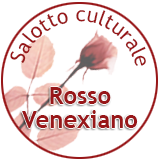
 Sostieni anche tu il nostro sito
Sostieni anche tu il nostro sito
 le nostre pubblicazioni
le nostre pubblicazioni 


